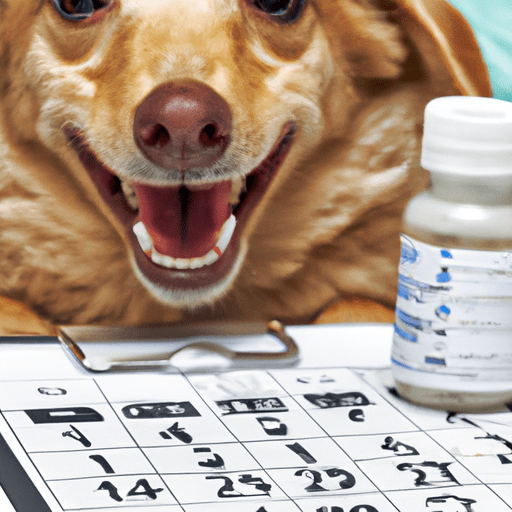“`markdown
How Often Should Dogs be Dewormed
Understanding the Importance of Deworming Your Dog
You, as a caregiver, might be aware that your furry friend requires regular deworming. But do you know why it’s so crucial? Worms, whether they be roundworms, tapeworms, hookworms, or whipworms, can pose a serious health risk to your dog. They can cause various health issues, ranging from upset stomach to severe weight loss and anemia. By regularly deworming your dog, you can prevent these parasites from taking a toll on your pet’s health.
The Frequency of Deworming
As a rule of thumb, the frequency of deworming often depends on your dog’s lifestyle and age.
- Puppies: Puppies are more susceptible to worms and should be dewormed every two weeks from the age of 2 weeks until they are 12 weeks old. After that, they should be dewormed monthly until they are 6 months old.
- Adult Dogs: Adult dogs should be dewormed at least twice a year. However, if your dog is frequently outdoors and in contact with other animals, you might need to deworm them more often.
Factors Influencing Deworming Frequency
Several factors can influence how often you need to deworm your dog.
- Environment: Dogs that spend a lot of time outdoors, particularly in areas known for parasites, may need to be dewormed more often.
- Diet: Dogs that hunt or eat raw or undercooked meat are at a higher risk of contracting worms.
- Age and Health: Puppies, older dogs, and dogs with chronic health issues may require more frequent deworming.
| Factor | Deworming Frequency |
|---|---|
| Environment | More often if outdoor |
| Diet | More often if raw/undercooked meat |
| Age/Health | More often for puppies, older dogs, ill dogs |
Deworming Products and Their Effectiveness
There are numerous deworming products available on the market, so it’s important to choose one that’s appropriate for your dog’s specific needs. Consult with your vet to determine the best product for your pet. Remember, no deworming product is 100% effective, and re-infestation can occur. Regular treatment is the best way to keep your pet worm-free.
Preventative Measures
While regular deworming is essential, there are other measures you can take to prevent your dog from getting worms.
- Maintain a clean environment.
- Keep your dog away from infested areas.
- Regularly check your dog for signs of worms.
- Feed your dog cooked or commercially processed food.
FAQ
Q: Can deworming cause side effects in dogs?
A: Yes, deworming can cause some side effects like vomiting, diarrhea, or loss of appetite. If these persist, contact your vet.
Q: How can I tell if my dog has worms?
A: Symptoms may include weight loss, dull coat, increased appetite, or diarrhea. Some worms are visible in the dog’s feces.
Q: Can humans get worms from dogs?
A: Yes, some worms can be transmitted from dogs to humans. Regular deworming can help prevent this.
“`



